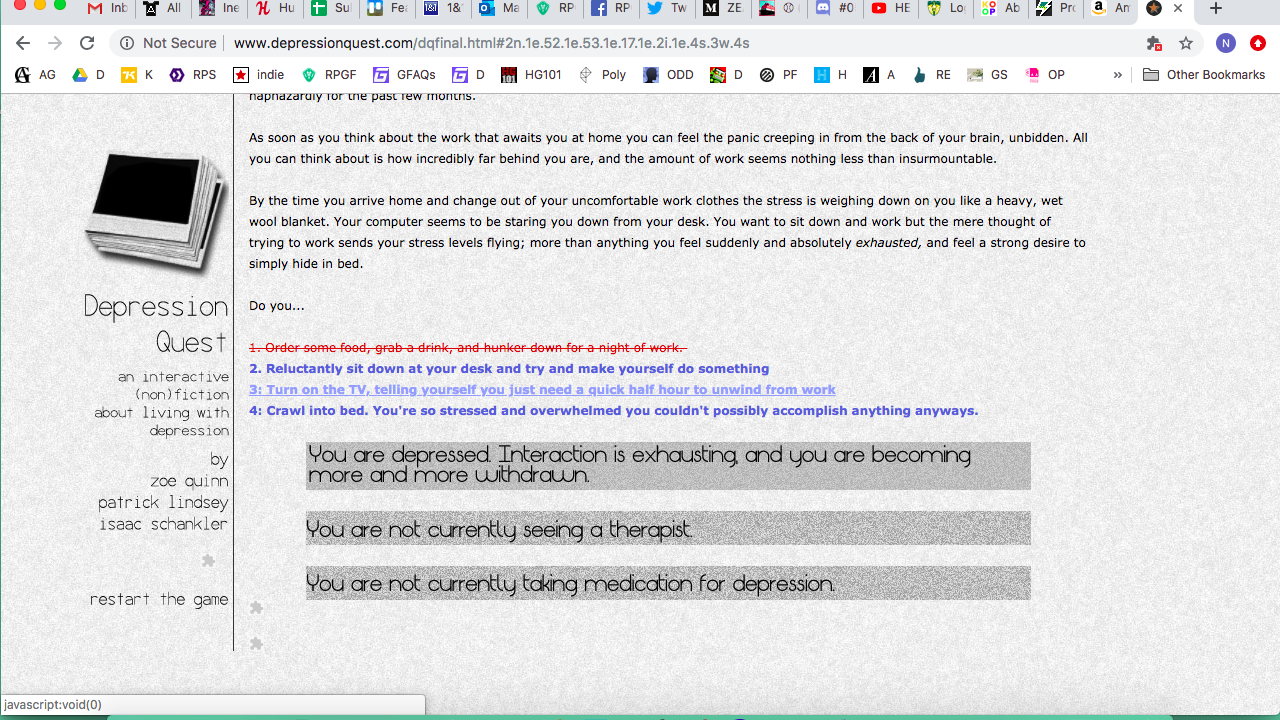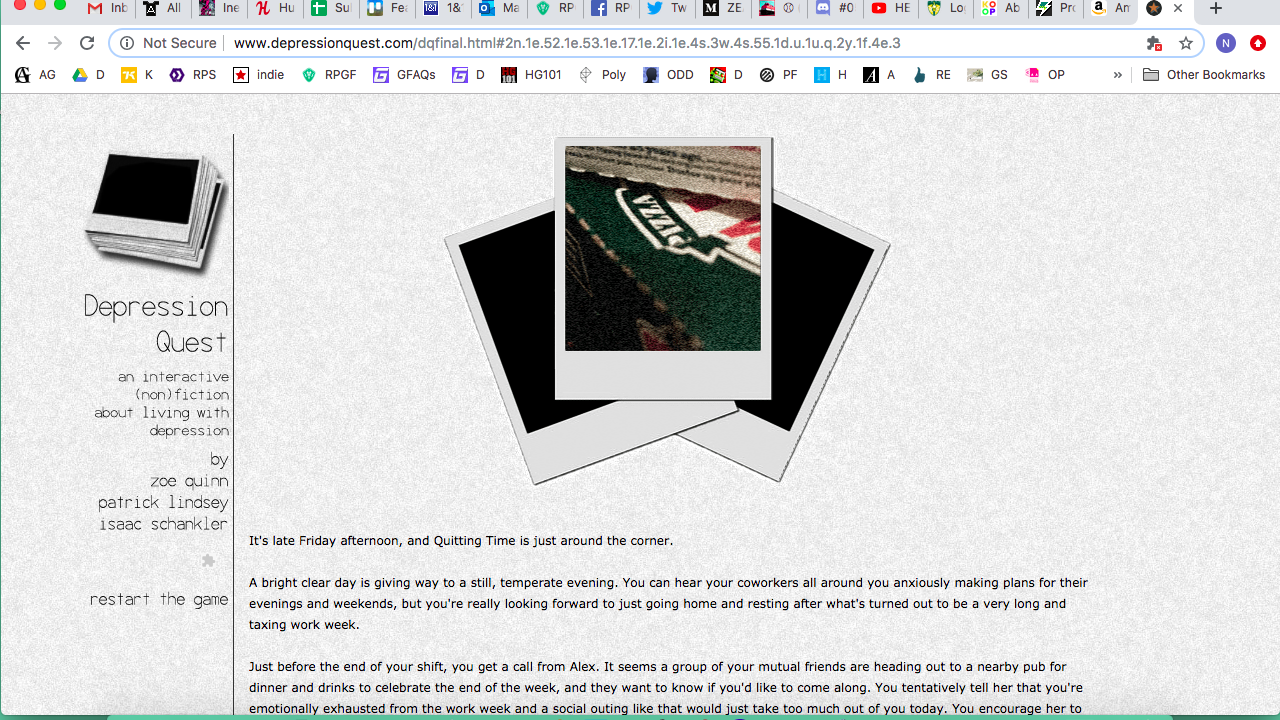Revisiting Depression Quest
Nilson Carroll
What do you do?
1: Let go of your stress and be intimate with your girlfriend.
2: Try to unwind with her before getting physical.
3: Suggest you do something else instead.
4: Tell her you’re not in the mood.
There’s something truly “not fun” about a game that begins with a David Foster Wallace quote, but like some of the most challenging and insightful games, Zoe Quinn and Patrick Lindsey’s Depression Quest (2013) is not about fun.¹ Sitting somewhere between diaristic interactive fiction and public service announcement, Depression Quest depicts the detailed, day-to-day depression of the playable character, a character blank enough to be the player, but with just enough biography to be mostly relatable to the assumed target audience (“You are a mid-twenties human being.”).

The bulk of the game’s text involves various everyday circumstances that are then made more complex by the character’s depression. Out of every set of hyperlink decisions, there’s always one, the healthiest option, that is crossed out by default, inaccessible. Here, the gameplay and metaphor align: our textual abilities are bound, not by color-coded dungeon doors, or lack of skill points, but by the inherent nature of the character, the illness they are dealing with. There’s no answer for “why” the character can’t talk openly to their mom about their depression. That’s just how it is.
What now?
1: Just call already – it can’t hurt to check it out.
2: Call after wrestling with it for a few minutes longer.
3: Don’t call. This is way too much for you to be able to deal with right now.
The night before I played Depression Quest, I created a character in Morrowind for the first time. In any given RPG, the player starts off without gold or friends, naked and powerless, but I had ready a dozen tabs open in Chrome with tricks on amassing powerful necro-magic. Morrowind, like real depression, is overwhelming, but one way in which they differ is that Morrowind offers the promise of giving one the tools to mastery and eventual ascension to Elder Scrolls badass. This process is somewhere between mere wish fulfillment and a playful, mythic transformation. Morrowind, or any mainstream video game, is designed to allow its audience to win.

There is no promise of amassing power in Depression Quest, no wealth to collect, no winning. There are some statistics listed at the bottom of the screen how depressed the character is, if they’re seeing a therapist, and if they’re on medication. One may not feel that visceral, video game sensation of being physically overwhelmed, palms sweating under operatic duress, but what’s happening in Depression Quest is real, period. There are no answers, no goals, just like in life. Only the search to continue to foster the will to live.
Its title feels routine at first, a play on “what games are named” and “what games are about,” but as the player moves through the text, its cyclical nature starts to cause players to feel the abrasion of time and they become exhausted by this depression loop. Its PSA vibe gives way to a work of life-like fiction, settles into something that feels like self-reflection. Perhaps it’s strange to say this in a media review (ramble?), but I praise the game for opening with a link to a suicide prevention hotline. It grounds the work in real-world depression, a powerful act, a prayer for health from its author.
Apparently there are multiple endings based on your gameplay decisions, but I couldn’t replay the game, force the character not to take their medication, for instance, just to see what happens (an interesting insight into what we consider “replay value”). They had become so real to me by the end of the text, and I didn’t have the heart to treat them with anything less than respect and empathy.
1. See Simon Parkin’s Zoe’s Quinn’s Depression Quest for more on this question of “fun” in contemporary gaming.
*
Nilson Carroll is an MFA candidate at Visual Studies Workshop in Rochester, NY. A barista-poet, Nilson is currently exploring 16mm expanded cinema, video projection performance, and makes queer video game installations.